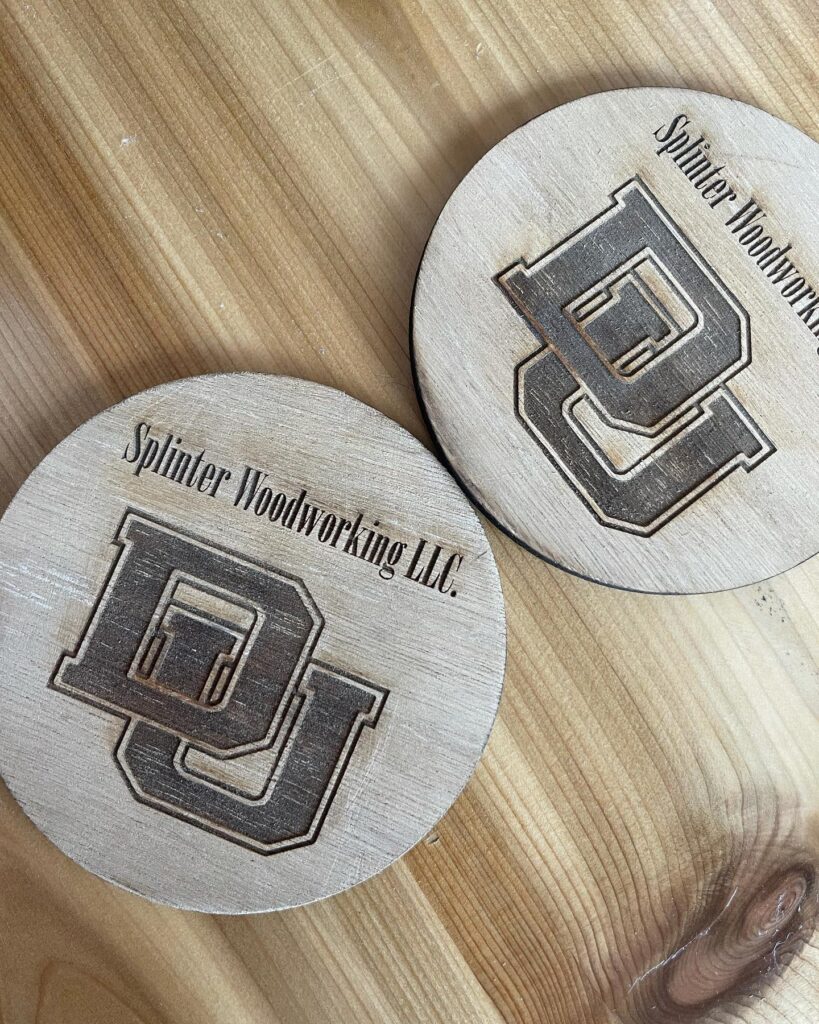Johnathan Bruss has used his innovative instincts as a student, woodworker and businessman
Johnathan Bruss is a DU senior majoring in finance and law, but this driven individual has enough side businesses to pretty much count as a third degree.
But Bruss never had any intentions of being an entrepreneur when he was growing up

Jonathan Bruss
“At age 15, I was completely my own,” Bruss said. “Living on your own without anybody, running water or even electricity at times, you have no choice but to figure it out. So, it’s not like
I was a little entrepreneur just running around. I was like, ’No, I have to do this.’”
While other teenagers were concerned about what soccer team to join, Bruss was looking for any way to support himself.
“I didn’t want to work the 9-5 because that’s too much with school. And I’ve done all sorts of jobs like restaurant work and landscaping, but I knew that wasn’t going to cut it,” he said. “I told myself, ‘You need to think of something smart. Like, actually use your brain or you are going to die.’ It was my only option.”
Bruss did just that. In the beginning, he tried different ideas that fizzled out and failed. However, he quickly came up with a paddleboard business that not only sustained him but taught him the skills to start a business in the most cost-effective way.
His aim was to create a venture with low investment but high reward.
Growing up outside Telluride, one of the most scenic places in Colorado, Bruss saw his ticket to making money: tourists.
Bruss looked around his town and noticed Airbnb’s popping up left and right. There was not much for visitors to do in the summer besides hike and see the beautiful sights, so Bruss decided to create an “experience” for people coming to visit.
“I thought to myself, ‘Maybe I can partner with some of these Airbnb hosts. When someone asks them for recommendations, they can point them my way and I can go do something with them.’” Bruss said. “Then, I thought to myself, ‘What am I going to do?’
“First, I considered rock climbing because I have always been a big climber, but quickly realized there was no way,” because of the potential liability, he said. “But one thing that was possible was paddle boarding.”
With no paddleboard experience, Bruss bought the licenses and six paddleboards for the nearby reservoir. He undercut the competitors in town and became a host on Airbnb for experiences. So, when guests booked their stays, the first thing that popped up was Bruss as an experience guide.
He saw an opportunity and jumped on it, just as he did with woodworking.
“I’ve always had a little bit of an artsy side,” he said. “And when you are working on the computer all day, it is nice to do something with your hands. Something tangible.”
Bruss first got into woodworking when he was in high school. He took a woodworking class and learned that he was a natural.
“I grew up with power tools, and I knew how to use them, so, naturally, I picked it up a little quicker and got things done faster,” he said. “I also took the class pretty seriously and my teacher noticed that.”
His teacher recognized Bruss’s skills and his desire to want to do more challenging projects—projects that required more time and tools than the class could provide. “I would ask, ‘Can I do this, or try this?’ and he would say no because they didn’t have the resources. But he said I could visit his actual woodworking shop and, if I wanted to, he could show me. So, I did,” Bruss said. There, he learned the ins and outs of being a woodworker and his passion continued to grow.
“I never really got paid, but I had a teacher who taught me basically everything, so it was worth it,” Bruss said.
Last year, this passion for using his hands and working with wood became a business. Once again, Bruss followed the “low investment, high reward” guide.

Bruss’s custom-made pieces
“DU’s resources offered low investment opportunities and then I would just turn around and sell. All I had to do was buy the materials,” Bruss said.
Bruss makes custom tables, end tables, charcuterie boards, desks, baseball bats, wine racks, coat hangers, secret storage closets—really anything someone wants him to create.
Being the forward thinker he is, Bruss has added handiwork to his business, knowing that the school’s resources aren’t going to last forever. He wanted to find a way to make his work more sustainable. This pivot allows him to take jobs that don’t require many power tools or additional supplies, so he can be a bit more flexible.
What the future holds for Bruss is unclear at the moment, but he is confident there are more exciting things on the horizon, and maybe even some new businesses to be created. After all, he likes trying new things.
In the meantime, Bruss is finishing his degree at DU and will graduate this spring. He plans to keep up his woodworking business wherever he goes next.
His advice for budding entrepreneurs consists of the things that got him to this point: take chances, use your brain, think hard and smart, look around you and see what isn’t being done (or something you can do better), and remember to follow the “low investment, high reward” guide.
Said Bruss: “If you can do something on your own that you can experiment with, it’s the best thing you can do.”
